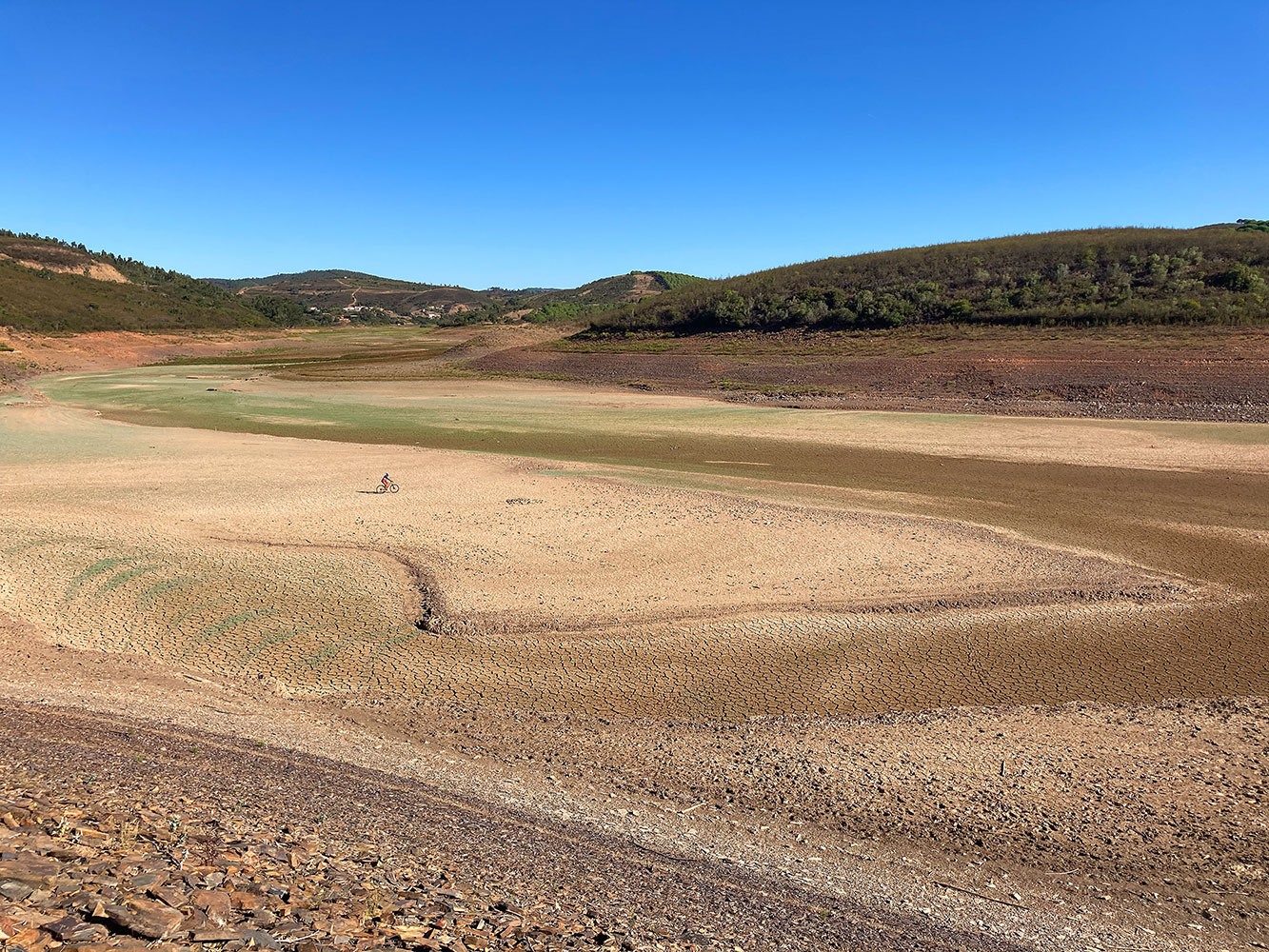Bravura has stood out as dam that “never seems to recover from rain”
Work is to begin on “stopping current water leaks” from the Algarve’s Bravura dam. According to a text from state news agency Lusa, the “modernisation work (…) will improve supply and counteract the scarcity of the precious liquid” (ie water).
The text makes no mention of the dimension of leaks from the west Algarve dam that was originally constructed in the 50s to serve local agriculture. Suffice it to say, this is the one dam in the Algarve where low water levels ‘never seem to recover’, irrespective of the amount of rainfall. In other words, the leaks are undoubtedly substantial.
António Marreiros, president of the Alvor Irrigators and Beneficiaries Association (the agricultural element receiving Bravura water), is cited by Lusa as explaining that this is a project “worth €11.2 million, plus VAT supported by the PRR (Plan for Recovery and Resilience)”.
Lusa’s text does not refer to entreaties of the past by the Algarve’s Sustainable Water Platform to effect these kind of improvements to the region, instead of embarking on grandiose plans for desalination installations that will ultimately pollute the sea, without in fact improving the way in which water falling freely from the sky is used.
The news centres on the fact that the tender for these improvements has just closed, meaning work will begin during the first half of 2025. The project has two phases: the first of which will begin once a company has been chosen to build a pumping station and a filtering station, with a reservoir capable of storing two days’ worth of water, as well as a section of the future pipeline.
This first phase is to be completed in 2026, and in the same year a second phase will begin, “the amount of funding for which has yet to be defined, which includes pressurising the entire irrigation perimeter.
“Yes, we’re always dependent on rain, but water management and water saving will be totally different”, says Marreiros. “With the modernised perimeter, with pressurisation, we are going to eliminate leaks and water losses by more than 90%”, he assured.
According to António Marreiros, 2024 was a very difficult year: it was possible to supply some water to farmers, but not every day: “It was in phases, every other week, but we had to keep the canal running, otherwise we would have had to lose more water”, he said.
“In order to have some water available for farmers, we need to reach eight thousand cubic decameters. We’re still a little short, according to our contingency plan, in order to be able to supply water to farmers,” he added.
The Alvor Irrigators and Beneficiaries Association, ARBA, which has around 900 beneficiaries with 1,800 hectares of land, has a contract with the state to manage, maintain and distribute water from the Bravura dam until 2031.
“At the moment, it’s almost a criminal offence to waste water”, landowner and beneficiary of the Alvor irrigation system, João Mendes, concedes. This investment “will be very beneficial”.
Bravura was initially built for agricultural purposes, but now serves the needs of public consumption, which includes tourism/ large hotels, even golf courses.
As João Mendes explains, consumption has essentially doubled in the last 30 years – while the number of tourist complexes has skyrocketed. It is more than high time that water catchment facilities were made to work efficiently, which is exactly what pressure groups have been saying for years.
Lusa stresses that the Algarve region “is going through a drought”. Again, this is not the reading of specialists like biological engineer Cláudia Sil, who told a public meeting last year that the region actually has AMPLE water for domestic/ urban use, but has been put under increasing stress levels through the heavy demands of industrialised agriculture (water intensive projects favoured by authorities in recent years that have brought multinationals flocking, and depleted underground reserves).
“The Algarve is not a desert”, she said in a presentation on the downsides of the desalination project planned for Albufeira. “It is being treated as if it will be by the agri-multinationals, because this suits them – and (a desalination plant) will increase all our water bills. They will become enormous… and this of course will suit Águas de Portugal…”
Thus, the news of Bravura’s modernisation could not be better: it is a project that makes total sense. Commentaries over social media however allude to the time it has taken to get here:
“The water leaks have been known about for a long time! Why only now (is this work beginning) and, apparently, with an ill-defined deadline? With such a long period of drought, was there no earlier opportunity? Perhaps it would have been possible to store more water than it did with this season’s rains! A forgotten Algarve! It’s the Barlavento region, which we hear little or nothing about,” says one commentator.




















